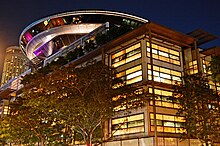
The remedies available in a Singapore constitutional claim are the prerogative orders – quashing, prohibiting and mandatory orders, and the order for review of detention – and the declaration. As the Constitution of the Republic of Singapore (1985 Rev. Ed., 1999 Reprint) is the supreme law of Singapore, the High Court can hold any law enacted by Parliament, subsidiary legislation issued by a minister, or rules derived from the common law, as well as acts and decisions of public authorities, that are inconsistent with the Constitution to be void. Mandatory orders have the effect of directing authorities to take certain actions, prohibiting orders forbid them from acting, and quashing orders invalidate their acts or decisions. An order for review of detention is sought to direct a party responsible for detaining a person to produce the detainee before the High Court so that the legality of the detention can be established.
The High Court also has the power to grant declarations to strike down unconstitutional legislation. Article 4 of the Constitution states that legislation enacted after the commencement of the Constitution on 9 August 1965 that is inconsistent with the Constitution is void, but the Court of Appeal has held that on a purposive reading of Article 4 even inconsistent legislation enacted before the Constitution's commencement can be invalidated. In addition, Article 162 places a duty on the Court to construe legislation enacted prior to the commencement of the Constitution into conformity with the Constitution.
There are two other more unusual remedies that may be granted. When a law is declared unconstitutional, the Court of Appeal may apply the doctrine of prospective overruling to prevent prejudice to an accused by overruling the law only from the date of the judgment but preserving it with regards to acts done prior to the judgment. In Canada, the Supreme Court has held that unconstitutional laws can be given temporary validity to prevent a legal vacuum caused by the voiding of laws until the legislature has had time to re-enact the laws in a constitutional manner. This remedy has yet to be applied in Singapore.
Damages and injunctions are not remedies that are available in constitutional claims in Singapore.
© MMXXIII Rich X Search. We shall prevail. All rights reserved. Rich X Search
